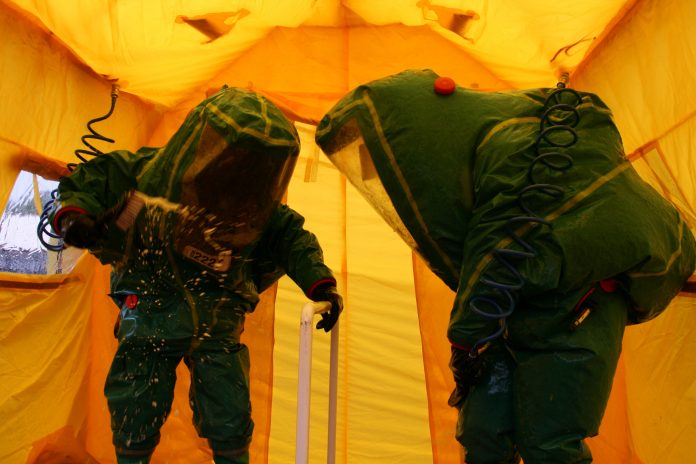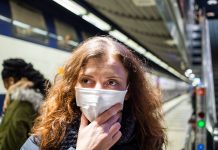Today (3 March) Boris Johnson unveiled the Government’s COVID-19 response plan for the immediate future, including bringing back NHS retirees
Facing an increasing amount of diagnosed Coronavirus cases and false scares across the country, the UK Government published a 27 page document at 10:30am to outline their battle-plan. With a new Treasury budget by a new Chancellor next week and the ongoing Priti Patel accusations in the Home Office, all eyes are on how the Cabinet mobilises to enact their COVID-19 response.
NEWS: Today we’ve launched our Coronavirus Action Plan – setting out our clear battle plan to research, contain, delay, and mitigate against #coronavirus in the UK.https://t.co/aoMXRH6KVn
— Matt Hancock (@MattHancock) March 3, 2020
What are 5 of the key promises in the COVID-19 response plan?
Point 1: Normal powers for doctors and police will continue
The government wrote that all professionals in the fields of medicine, public health and public security would have access to powers that let them “detain and direct” people in quarantined areas – even if they suspect them of having the virus. The use of such powers is nothing the public expected to be announced, as they are part of the day-to-day arsenal of both fields. However, the government also warns that the re-direction of NHS resources to hyper-local places “might mean that other services are reduced temporarily”.
Point 2: Keep washing your hands, says the Government
From the new Home Secretary to the PM, everyone in the UK Government is asking us to wash our hands. The resounding advice is to sing happy birthday twice, whilst washing your hands thoroughly. We covered how to protect yourself from catching COVID-19 when you’re on the move, and dismissed the efficacy of surgical masks.
Aside from the disinfecting of hands, the government hinted that “potential” actions to stop the virus spreading will have “social costs” that need to be weighed against the “social impact” – so the Cabinet are still in the research phase of making decisions about how to stop COVID-19, and treading lightly at that. The social impacts to which the government refers are not further explained, but we can assume that mass enforced isolation via city lockdowns could cause problems for how communities exist, as seen in Wuhan.
Matt Hancock, Secretary of State for Health and Social Care, said:
“Right now, we do not recommend the cancelling of mass events and schools as well should not be closing unless there is a positive case and the schools have the advice to close.
“There maybe things we have to do down the line that we don’t want to, but we will need the powers to do that hence proposing emergency legislation.”
Point 3: Imperial College London created a way to understand COVID-19
The NIHR HPRU in Modelling Methodology is led by Imperial, which has developed analytic tools to understand the evolution of infectious diseases like COVID-19. They’ve built a real-time model, so when politicians are making decisions about where to direct resources, they can make these policy decisions with artificial omniscience – theoretically. So the UK have access to good data to build their COVID-19 response plan – as it develops, we will see how they use it.
Point 4: They will try to delay COVID-19 until the summer
They wrote that “widespread exposure in the UK is inevitable”, based on how previous pandemics have unfolded. So the UK plan is, after the disease becomes a certainty throughout the country, to delay it for as long as possible until “services are less busy in the summer months” – due to the absence of the reliable queue of winter bug sufferers at local practices. This is part of their plan to “minimise the social and economic impact,” in addition to the hygiene measures. They also remind us that in 2009, “swine flu” was significantly slowed by the intervention of school summer holidays.
Point 5: Retired NHS staff will be called back out
The government assert that “everyone will face increased pressures at work,” increasingly so if schools are shutdown and healthcare professionals have to look after their children. This leaves an urgent window for individuals who know how to administer healthcare, which is going to be tackled by the UK in two general ways: delaying non-urgent care and calling back retirees.
More plans are hinted at here, such as a distribution strategy for the medicines stockpile in the UK for the NHS, and “other sectors as appropriate” – again, we will see what happens if COVID-19 reaches a stage of mass infection. Currently the availability and price of resources (medical and otherwise) are a key concern of ongoing trade negotiations with the EU, and as famously discussed in the General Election, with the US. The EU Commission announced a €232 million COVID-19 aid package to research, diagnose and treat the outbreak in mid-February.
And in response to Chancellor Rishi Sunak’s highly-anticipated economic assessment, the shadow Chancellor John McDonnell MP said:
“The new Chancellor is missing in action at a time of great uncertainty.
“We need an action plan to manage possible economic consequences, and that plan has to be implemented rapidly.
“I’ve therefore set out a series of recommendations for action today to ensure we are ready for a range of possible economic outcomes in the coming days and weeks.”
The Labour COVID-19 response includes the suggestion that there should be solid legislation to give workers guarantees for paid sick leave, increase funding to impacted departments, share data with OECD and review “supply and demand shocks” to understand how the landscape will change as COVID-19 continues to develop.
Editor's Recommended Articles
-
Must Read >> Cybercriminals take advantage of coronavirus news





























